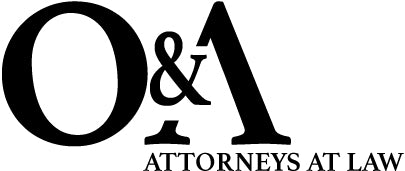
Business Interruption Insurance Claims Checklist
Since March 2020, when the first orders to shut non-essential businesses came in, business operations have and continue to fray from the present difficulties involved in steering through this crisis and prospects of an uncertain and anxiety-ridden aftermath. The negative effects of the coronavirus on global supply chains and sales are sending businesses scurrying for gauze to stop the bleeding; ensuring that insurance claims against business interruption policies are on the rise.
Business interruption (BI) insurance is a way for businesses that have suffered loss from the disruption occasioned by the coronavirus known as COVID-19 to recover their losses. This type of policy typically grants coverage to businesses towards recovering certain losses accrued, during a period, due to a covered disruptive event affecting operations. The aim is to keep the business in the position that it would have maintained had there not been an interruption in business operations.
If you own a company with business interruption insurance, then you know that payout can be the difference between survival and cessation. The only problem is that insurers run a business too, and your claim will be taken as a challenge to their own survival. As a result, you will need to maximize your business interruption coverage and avoid mistakes or omissions that may prove harmful to your claim.
The following is a checklist, for policyholders, of steps before, during and upon unsuccessfully making a claim.
Before making a claim
A business that suffers a loss as a result of disruption arising from Covid-19 should first review its insurance to determine if it has cover. According to the United States Small Business Association, over 90% of businesses fail within two years of being struck by a disaster. Yet, even more alarming is the fact that about 40% fail to re-open following disaster due to lack of or miscalculated business insurance.
The standard is that the loss of income suffered by a business is a direct result of physical damage to insured property. Thus, the insured is, in the circumstances, unable to claim under its business interruption insurance as Covid-19 has not caused any physical loss. However, business interruption insurance is not a standalone policy and is typically melded with, or included as part of another existing insurance package. Which is why policyholders may still be able to obtain relief from business interruption via a package incorporating “time-element” cover, supply chain insurance, or prevention-of-access extensions, or civil-authority mandated closures.
So, whether your claim is covered will depend on the terms and conditions of the policy and the circumstances surrounding the loss. Relief is possible, assuredly through additional coverage options which are tailored to your business-specific needs. But there is also the chance that even these are subject to limitations and exceptions.
As a policyholder seeking to make a claim, you should;
- Get advice on coverage from your insurance coverage lawyers,
- Prepare a team, preferably including your lawyers, to prepare and conduct the business interruption claim,
- Examine your insurance policy to determine your rights and your responsibilities to your insurer after a loss,
- Document the income for several months prior to the interruption;
- Measure the business income loss;
- Draw up and prove accurate future projections not solely based on past earnings or budgets,
- Document the facts of the loss, including, but not limited to, the following:
- Time of the loss
- Date of the loss
- Property damaged
- Obtain a copy of all insurance policies.
- obtain copies of at least two years of company accounting records and documents related to the business interruption including
- Inventory records for the period during and after the loss,
- tax returns,
- production and sales records,
- payroll records for the periods during and after the loss,
- bank and financial statements,
- internal records,
- cost accounting records,
- Document costs incurred when trying to avert or reduce the loss such as
- expediting expenses incurred,
- extra expenses needed to continue operations
You should do the following with aid from, and reasonably after consulting with a qualified lawyer. You can contact our experienced insurance attorneys at Oshan & Associates through our page, and we will help you understand your rights and options in a free, no-risk consultation.
Steps to making a claim
The standard is that the claim must arise out of a cause covered or included under the policy. To make your claim, you should;
- Notify all insurance companies of loss and maintain record of all communication with insurance companies.
- Determine and document period of restoration,
- Engage your insurance adjuster and file your claim,
- Tender all necessary and appropriate documentation,
- Engage an independent adjuster if appropriate,
- Implement work orders or establish specific general ledger accounts to accumulate loss-related charges.
- Establish business interruption accounts should for:
- Temporary repairs,
- Fast track costs for incremental repairs,
- percentage increase freight costs for quicker delivery of repair inventory
- Incremental costs for temporary facilities,
- alternative methods or facilities
- extra freight,
- premiums paid for higher prices of materials on subcontracted work.
Enforcing or seeking redress for a denied claim
Your insurer’s relationship with you should, by law, be one of good faith. It is bad faith where your insurer intentionally and wrongfully denies a claim they are obligated to pay. A common scenario is that you are shortchanged and denied the full value.
Your insurer may also either handle your case improperly or be unwilling to help you claim against your business interruption policy. It is also possible that your insurer is rewriting policies to exclude losses from certain events.; or failing to properly investigate business insurance claims.
In such situations, you should;
- Consult with your lawyer on the next step considering the circumstances
- Talk to your insurance agent or claims manager to lay your grievances,
- Contact the consumer affairs or customer complaints department of your insurer and argue your case for a larger or passed settlement,
- Contact your state department of insurance and report any wrongdoing or issues,
- When all else fails, consult with your business interruption claims attorney again on a possible lawsuit,
- Where he deems a valid lawsuit, provide the lawyer with all important documents and a copy of your insurance policy,
Your lawyer can help you:
- Review your insurance policy;
- Communicate with your insurer regarding the protection you deserve;
- Negotiate a fair settlement for your business;
- Hold your insurer responsible in court should they deny your right to full and fair settlement.
1 Response
Leave a comment
Comments will be approved before showing up.
Also in Business Interruption Blog

What To Do If I Can't Reach My Attorney

Business Interruption Claims Attorneys
Was your COVID-19 business interruption claim denied by your insurance company? You may be entitled to claim against them for insurance bad faith and wrongful denial of your claim. Our business interruption claims attorney can help.

Business Interruption Policies and the Law
A lot of businesses have taken a hit since the outbreak of the coronavirus in the US. Business outfits are thus looking to find protection under their various business interruption policies. This article provides information on business interruption policies in the light of COVID-19 pandemic.

Dave Pangton
December 24, 2020
Thank you for your very nice topic and Very significant Information for us.